St. Gallen Students Visit UNITAR for the Second Time
08 February 2017, Geneva, Switzerland - The 2nd school visit of students from the St. Gallen Kantonsschule am Burggraben (Switzerland) to the United Nations Institute for Training and Research (UNITAR) took place on Wednesday, 1st February 2017 in Geneva. The visit was requested by the school as part of the 3-day Students’ United Nations simulation in Geneva. St. Gallen students participated in the 1st Youth Climate Dialogues with the Lilongwe Girls Secondary School (Malawi) on November 2015.

To briefly explain what UNITAR and its different programmes do, Ms. Emily Fraser from the office of the Executive Director, Mr. Rabih Haddad, Manager of the Multilateral Diplomacy, and Ms. Amrei Horstbrink from the Green Development and Climate Change briefly introduced their programmes and explained the role of UNITAR in reaching SDGs and its attempt to shape the international relations agenda (i.e. Paris Agreement on climate change). Many of the students were in the final years of High school and still undecided on their professional endeavours. Getting to meet professionals within the UN and how the system works, could help the students in their decisions.
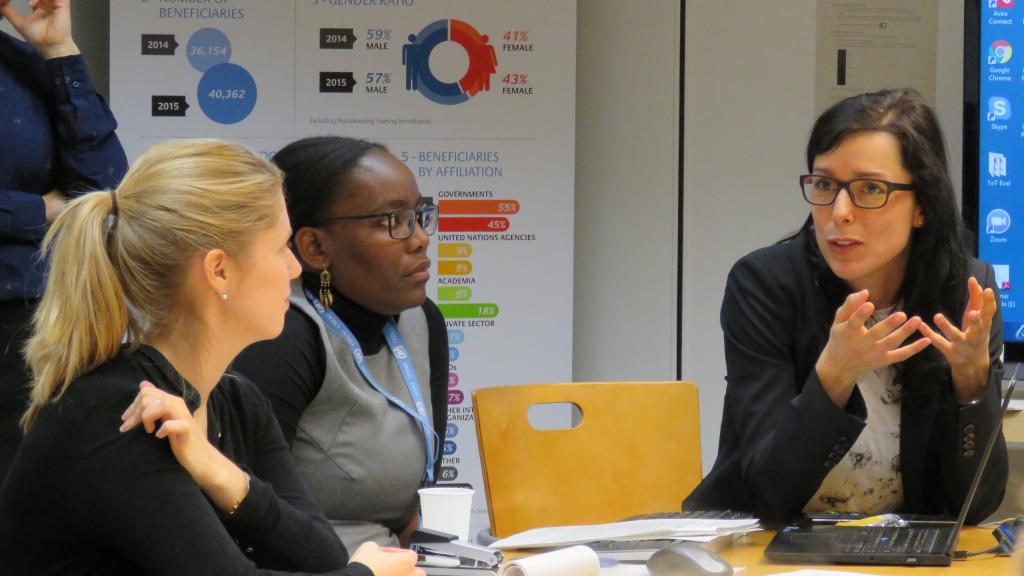
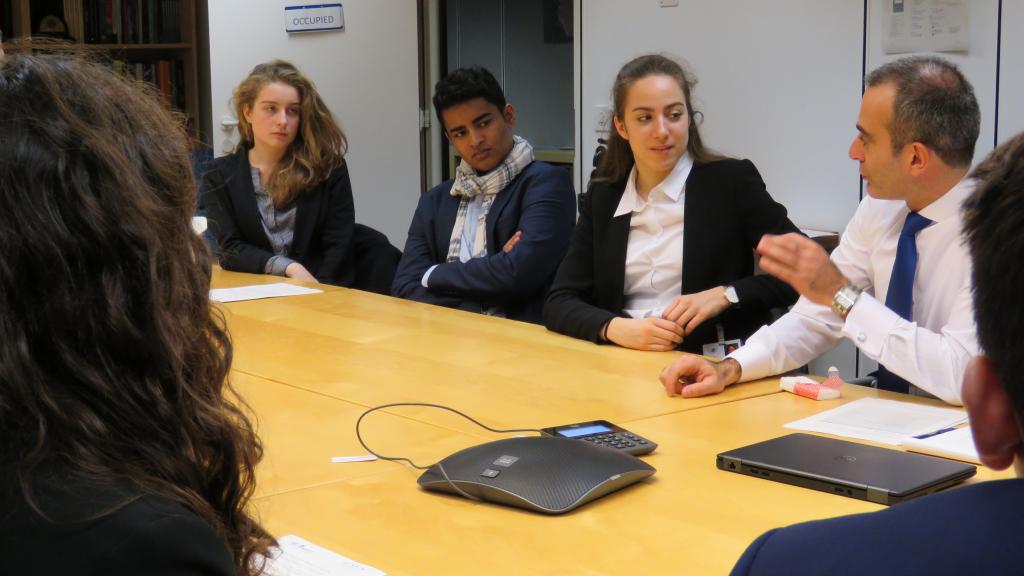
Students had the opportunity to listen to career guidance, with special emphasis on the role of soft skills in any career and organisation, including the UN. Students met UNITAR staff (IT, project management, communication and social media specialists), understanding that professionals from various academic backgrounds make organisations function.
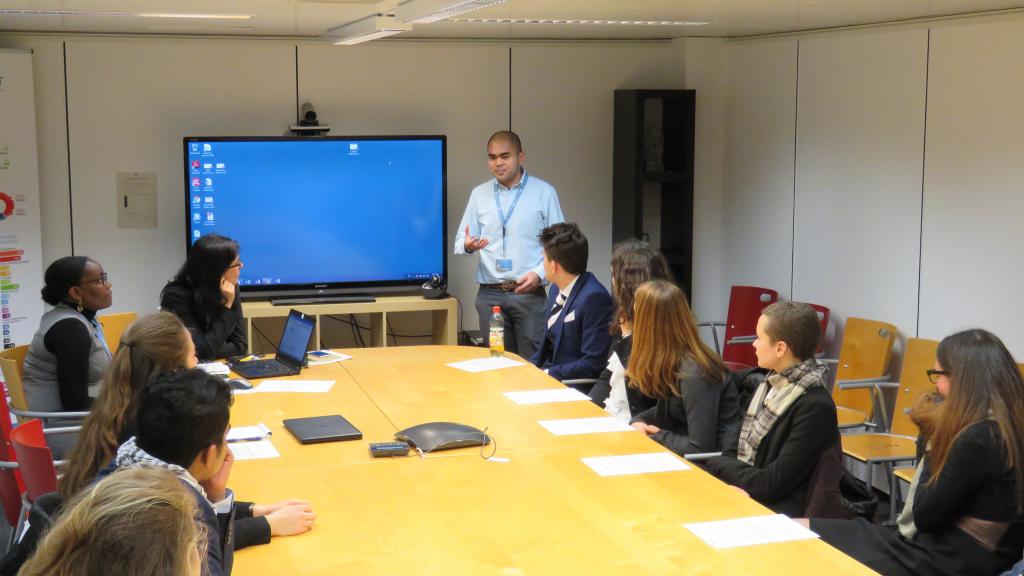
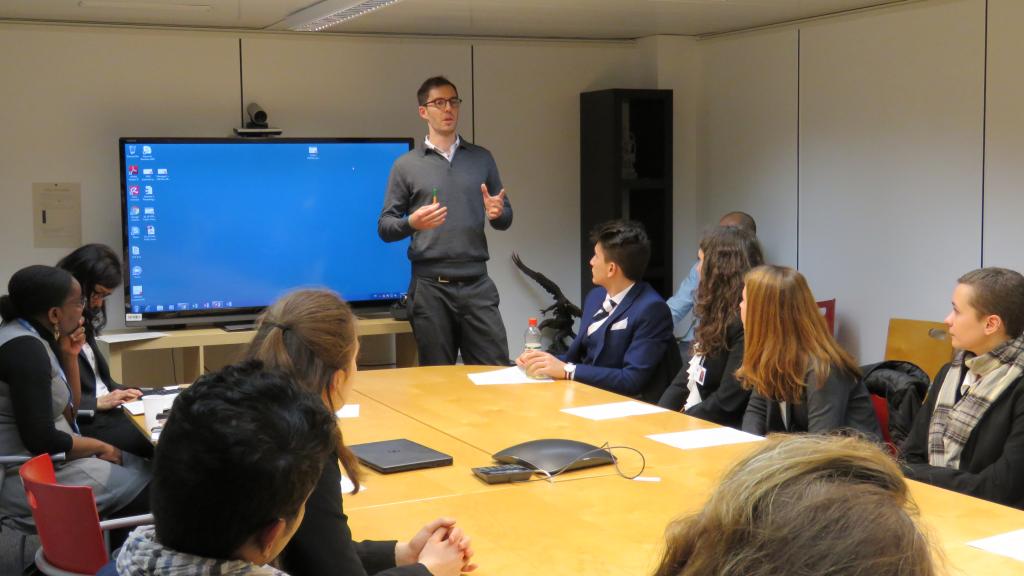
In the end, students had a group exercise and discussed their thoughts on the following three questions related to climate change:
1. What comes to mind when you hear the word climate change?
- Humans destroy nature and our future will be quite affected.
- Dying polar bears; melting glaciers; rising sea levels; desertification and deforestation; future; floods; habitat loss for animals leading to dying animals; extreme weather changes – flooding vs droughts; clean water.
- Climate change denial; COP; Greenhouse effect; changes in agriculture; Worldwide empathy.
2. How do you learn about climate change?
- Mainly Geography class; elementary school; media, documentaries; Youth Climate Dialogue in particular what the consequences are (former participant); family, friends, Facebook.
3. How can we get more youth interested in climate change? What are some of the factors that would push you to changing your habits for the environment?
- People need to understand what they will lose if they don’t change their habits. People do not really care about things that do not directly affect/bother them.
- Make climate change problems into emotional problems. Messages need to touch hearts in order to incentives changing of habits. Knowledge is not enough – emotions are more effective.
- Blogs are medium in which people tell interesting stories. If it talks about stories and humans the blog would be very interesting and get people interested.
- We need to create more activities for youth that show the personal impact of climate change on their lives e.g. Youth Climate Dialogues on a larger scale.
- We also need to show possibilities to solve climate change and understand climate change in a fun way. Tell the youth of the little things they can change to help stop climate change.
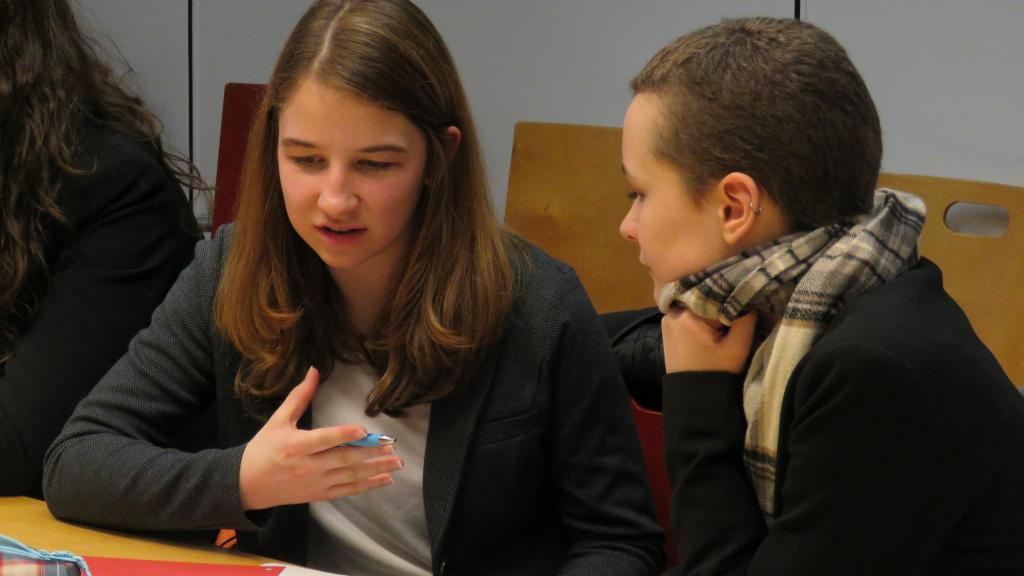
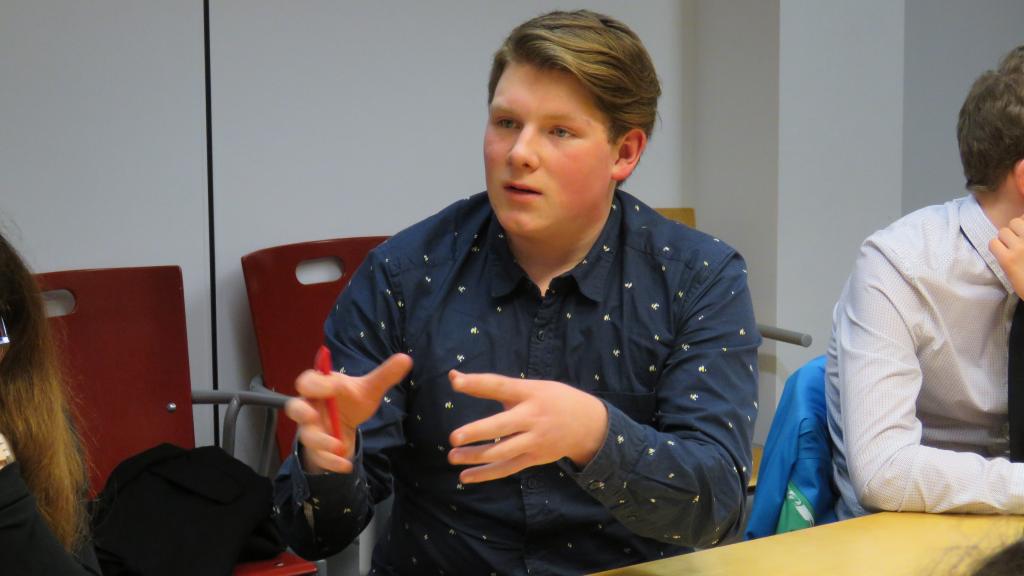
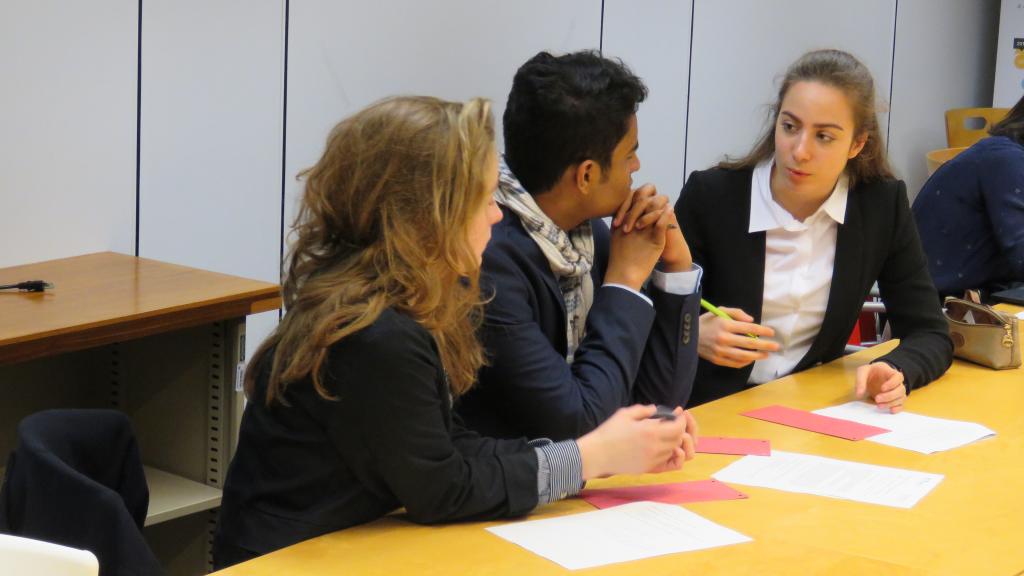
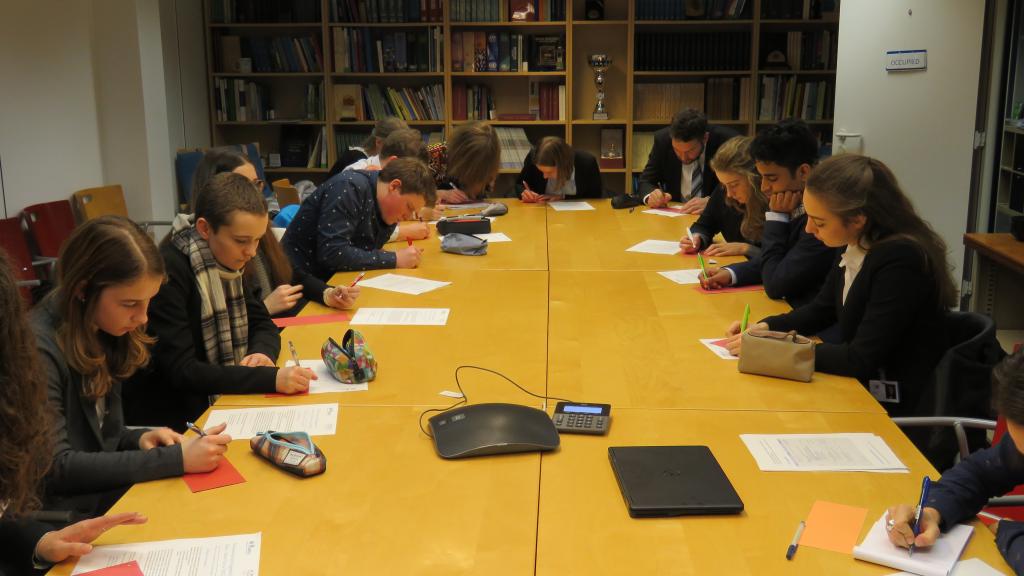
Upon the success of the meeting, Mr. Ueli Albrecht, students' International Relations class teacher, requested the possibility for UNITAR to become a regular part of the annual Model UN conference itinerary. The visit has been helpful to the students in better understanding the UN, the role of capacity building in international relations and most importantly, that the students are able to make informed decisions about their future careers.
Related Links
St.Gallen students' visit in 2016: http://www.uncclearn.org/news/st-gallen-students-visit-unitar-learn-about-new-agenda-sustainable-development
Photo Gallery: https://www.flickr.com/photos/146345277@N06/albums/72157676549124193
About UN CC:Learn
UN CC:Learn is a partnership of more than 30 multilateral organizations supporting countries to design and implement systematic, recurrent and results-oriented climate change learning. At the global level, the partnership supports knowledge-sharing, promotes the development of common climate change learning materials, and coordinates learning interventions through a collaboration of UN agencies and other partners. At the national level, UN CC:Learn supports countries in developing and implementing national climate change learning strategies. Through its engagement at the national and global levels, UN CC:Learn contributes to the implementation of Article 6 of the UNFCCC on training, education and public awareness-raising, and the 2012-2020 Doha Work Programme. Funding for UN CC:Learn is provided by the Swiss Government and UN partners. The Secretariat for UN CC:Learn is hosted by the UN Institute for Training and Research (UNITAR).
Photo 1: UNITAR staff and students from St. Gallen Kantonsschule am Burggraben
Photo 2: Ms. Emily Fraser from the office of the Executive Director and Ms. Amrei Horstbrink from the Green Development and Climate Change
Photo 3: Mr. Robert Narvaez, IT Specialist, presented his background and career to students
Photo 4: Mr. Giuliano Montanari, Green Economy Specialist, shared his background career path
Photo 5: Students share their ideas and thoughts on climate change
Photo 6: Students present their group work
Photo 7: Students discuss their ideas on climate change
Photo 8: Students work on a group exercise

